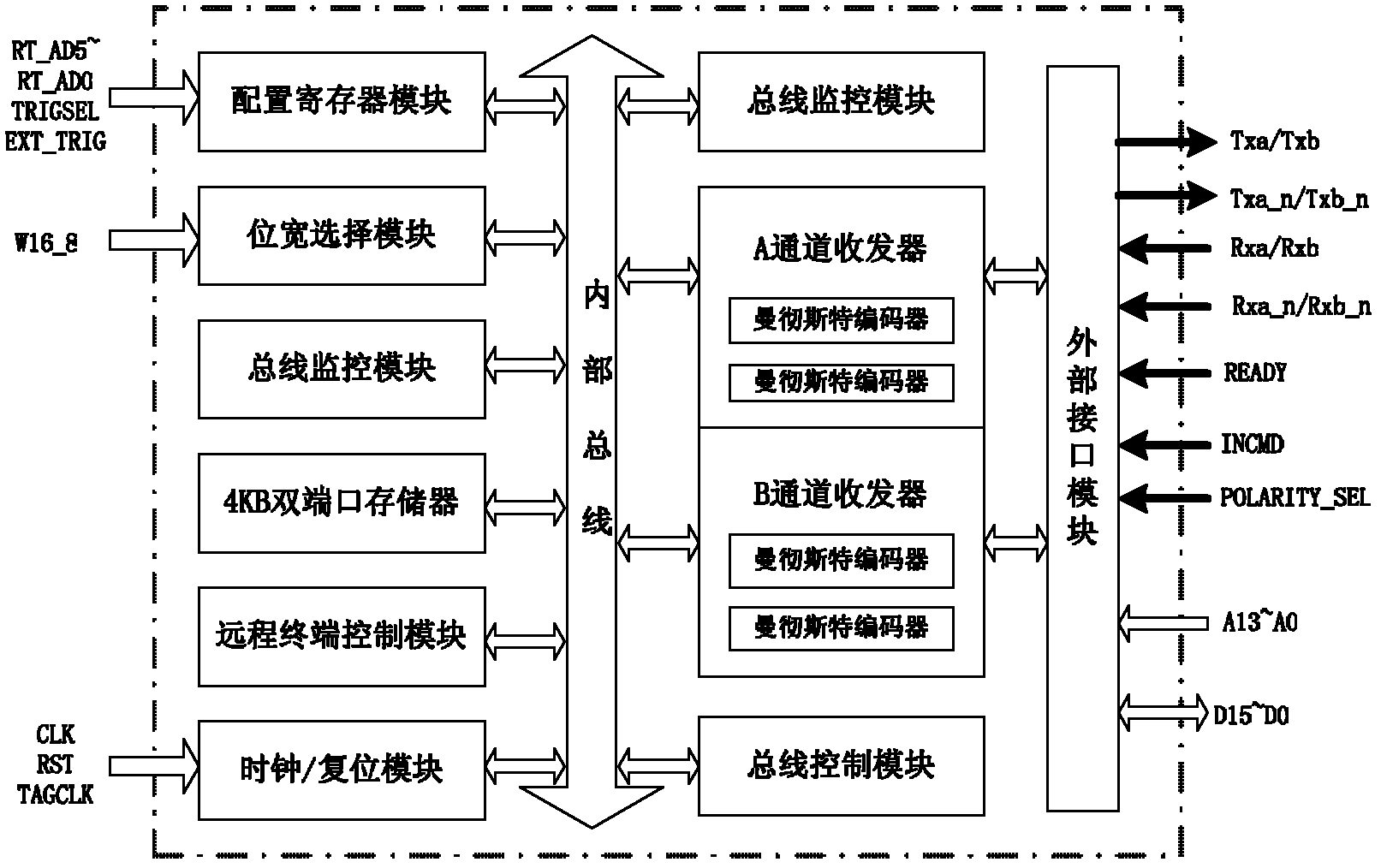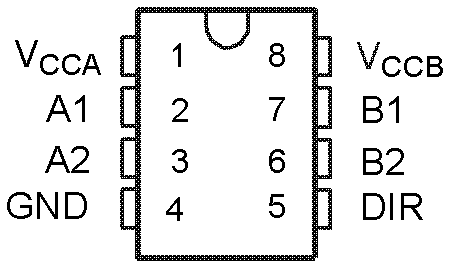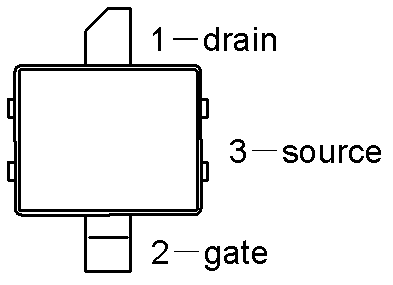Discrete transceiver circuit suitable for high-speed 1553 bus
A transceiver circuit and bus technology, applied in bus network, data exchange through path configuration, etc., can solve the problems of increased system development cost, increased development cycle, poor flexibility, etc., and achieve strong scalability, good versatility, Cost and time saving effects
- Summary
- Abstract
- Description
- Claims
- Application Information
AI Technical Summary
Problems solved by technology
Method used
Image
Examples
Embodiment Construction
[0031] The present invention will be further described below in conjunction with drawings and embodiments.
[0032] The present invention adopts the method of building discrete devices, and is divided into two parts: a transmitter and a receiver.
[0033] The transmitter is connected with the protocol processor to complete the transmission of high-speed Manchester code. It consists of a bidirectional voltage conversion driver with three-state output, LDMOS (or NMOS) and resistors / capacitors with certain resistance and capacitance. The structural block diagram of the high-speed protocol processor circuit, and the circuit pin diagram of SN74LVC2T45 and LDMOS-BLF6G21-10G are respectively shown in figure 1 , figure 2 and image 3 .
[0034] Such as figure 1 As shown, the high-speed protocol processor circuit includes: a dual-channel communication protocol processing module, an external interface logic module, a configuration register module, a storage management module, a bit...
PUM
 Login to View More
Login to View More Abstract
Description
Claims
Application Information
 Login to View More
Login to View More - Generate Ideas
- Intellectual Property
- Life Sciences
- Materials
- Tech Scout
- Unparalleled Data Quality
- Higher Quality Content
- 60% Fewer Hallucinations
Browse by: Latest US Patents, China's latest patents, Technical Efficacy Thesaurus, Application Domain, Technology Topic, Popular Technical Reports.
© 2025 PatSnap. All rights reserved.Legal|Privacy policy|Modern Slavery Act Transparency Statement|Sitemap|About US| Contact US: help@patsnap.com



